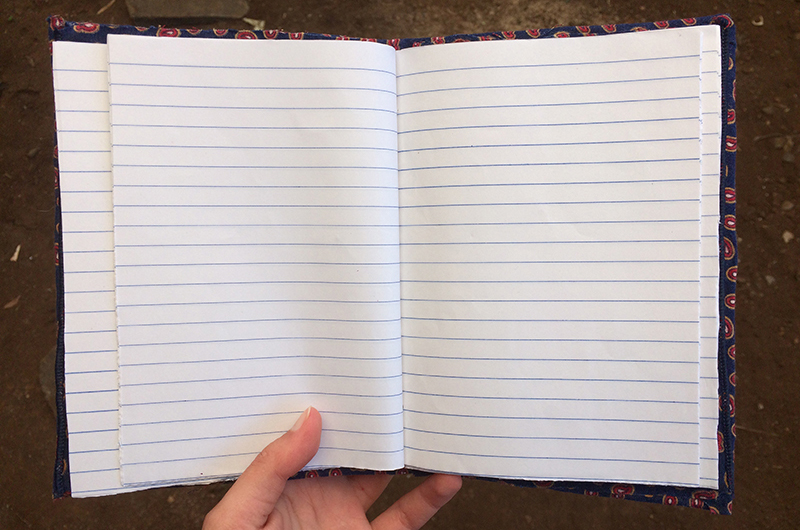Before I began my ten month-long exchange in Costa Rica, I was a mindless consumer, buying what I could when I had the money. If something was broken, it went into the trashcan and I bought a new one. If I wanted a new piece of clothing, I would order one online or browse the stores downtown. Not only did this habit prove to be expensive, but it muffled my creative drive and curiosity about how things are made.
With just a few clicks, we open ourselves up to thousands of available products. In the United States, many stores typically have what we seek in stock, and if not, waiting usually does not last too long. Although this is beneficial in many ways, it removes our need to create and repair possessions. Yet technology in regards to online shopping and the distribution of goods, has developed with a global inconsistency. In some ways, this contributes to the variation in relationships with shopping and merchandise in different parts of the world.
The Efficiency of “Doing It Yourself” in Costa Rica
Upon arrival to my home here in Costa Rica, I was quickly introduced to the efficiency of household production. My host mom’s prized possession is her sewing machine, and she has used it to combine her passion for sewing with her interest in making things herself. Her portfolio is extensive, ranging from bedding to electronic tablet cases, and grocery shopping is regularly followed by a trip to one of the many fabric stores that fill my town.

Although my host mom admits to sewing as being one of her hobbies, she also mentions that it is a practice adopted by many people out of practicality. Stores here are typically smaller-sized and do not make special orders for anything that is not on their shelves at that moment. The small selections often drive people into San José (the capital and largest city of Costa Rica) to complete their shopping, but the time needed and stress spent on making the trip encourages the majority of people to either shop online, or make what they need themselves.
Online shopping can also be an expensive and lengthy process, as many products are shipped from the United States or other larger countries. In many cases, household production proves to be the most reasonable option for working families in Costa Rica.
Household Production in Everyday Life in Costa Rica
Sewing is not the only method in which household production has found its way into everyday life. Many families, including my own, use their spare time to work on house additions or fixing broken electronics. My family is in the middle of constructing a second-floor bedroom at the back of our house. They are embodying the relaxed “tico lifestyle” as they continue working on this project, that has now lasted years, with no rush in sight.
My host dad also saves time and money by repairing electronics; he enjoys tinkering with car parts, and fixing anything from kitchen appliances to cell phones.

Transforming Skills into Hobbies
With the luck of having generous and patient host parents, I have been able to learn some of these skills, and transform them into hobbies that I can take home with me after my exchange year has ended. I use my free time to practice embroidery, book-making, and other activities that help me express myself in a form that is easily able to be integrated into my life. Not only has this expanded my collection of random interests I can now indulge in, but it has also increased my problem solving and project starting abilities.
When I finished my journal and could not find one that I liked in town, I learned how to recycle unused paper from old school notebooks and create my own. When my bag broke and the only ones I could find were expensive, I bought some second-hand fabric and, with the help of my host mom, sewed one that fit my needs.
What initially appeared to me as hobbies, have since shown themselves as ways which we can use our capabilities to solve problems. Instead of looking at a broken hair straightener and seeing a piece of garbage, my host dad sees a challenge he can work on. Instead of seeing torn pajamas as another trip to the store, my host mother sees a chance to create unique clothing that fits, looks, and feels exactly how she would like it to.
“By taking these tasks on themselves, they practice approaching issues with a more reasonable and determined mindset. By teaching these activities to me, they are passing on this opportunity to expand my own problem solving skills.”

DIY may be trendy in many parts of the world, but here in Costa Rica, it is a part of the lifestyle. It is a manifestation of independence and cultural quirks that find their way into the objects that fill our lives every day. It is a resourcefulness and understanding that we all have the power to create what we need if we push ourselves to do it. Designing the objects that fill our lives is like constructing bricks to build a house; it gives us the power to create our own realities from every detail to the larger picture, and every beginning to the very end.
About the Author:
My name is Rachael Maloney, and I am a curious venturer fueled by good books and foreign food. I am currently spending my junior year of high school in Costa Rica, doing my best to absorb everything my 10 months abroad have to teach. I look forward to carrying these lessons with me for many years to come, and, in the meantime, sharing them in online articles for those who are interested. Follow Rachael on her adventure and read her stories here.

Leave a Reply